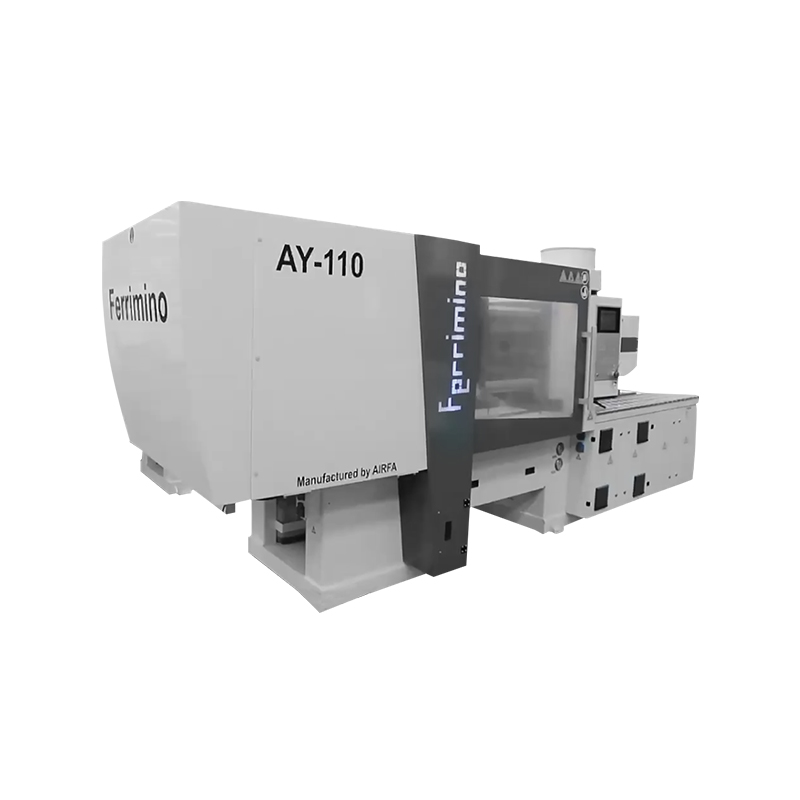The Plastic Thin Space Cup Mould represents an innovation in the manufacturing o...
-

+86-15068654601
-

No.62 Zhao Feng Road, Huangyan, Taizhou, Zhejiang, China

+86-15068654601

No.62 Zhao Feng Road, Huangyan, Taizhou, Zhejiang, China
The landscape of modern manufacturing is fundamentally shaped by the need for efficiency, consistency, and scalability. Before the widespread adoption of automated processes, producing complex plastic components in large quantities was a labor-intensive, slow, and often inconsistent endeavor. The Plastic Injection Molding Machine emerged as a transformative solution to these core industrial challenges. This sophisticated apparatus, which involves heating plastic granules and injecting the molten material under high pressure into a precision mold, addresses several fundamental problems simultaneously. Its development and refinement have made it possible to create everything from tiny medical components to large automotive parts with remarkable speed and precision. The role of a reliable Plastic Injection Molding Machine Supplier is therefore critical, as they provide the technology that enables this mass-production capability.

The Challenge of Mass Production and Replicable Consistency
A primary problem in industrial production is the need to manufacture thousands, or even millions, of identical parts. Manual or less automated methods struggle with this demand, both in terms of speed and maintaining uniformity.
Achieving High-Volume Output: The Plastic Injection Molding Machine is engineered for high-cycle production. Once a mold is installed and the parameters are set, the machine can operate continuously, producing a new part every few seconds. This rapid cycle time is essential for meeting the demands of global supply chains for consumer goods, electronics, and automotive industries. The efficiency of a single machine makes large-scale production economically viable.
Ensuring Dimensional Repeatability: Each cycle of a properly calibrated Plastic Injection Molding Machine produces a part that is virtually identical to the last. This solves the problem of human error and variation inherent in manual fabrication. For components that must fit together with precision in a larger assembly, such as a gear within a printer or a housing for a smartphone, this repeatability is non-negotiable. A reputable Plastic Injection Molding Machine Supplier ensures their equipment can maintain the tight tolerances and stable process control required for this level of consistency.
The Problem of Manufacturing Complex Geometries
Many product designs require shapes that are difficult or impossible to achieve through traditional methods like carving, bending, or assembly from multiple pieces. This includes parts with intricate details, undercuts, and hollow sections.
Creating Intricate Details in a Single Operation: The process of injecting molten plastic into a high-precision mold allows for the creation of highly complex geometries in a single, integrated "shot." This includes fine textures, logos, threaded inserts, and living hinges. The technology solves the problem of how to economically produce these sophisticated designs without requiring extensive secondary machining or assembly operations.
Integrating Multiple Components: Through advanced techniques like overmolding and insert molding, a Plastic Injection Molding Machine can combine different materials or pre-made components into a single, seamless part. For instance, a soft-grip handle can be overmolded onto a rigid plastic tool body, or a metal screw thread can be encapsulated within a plastic housing. This capability streamlines production, reduces assembly costs, and enhances product functionality and durability. The expertise of a technical Plastic Injection Molding Machine Supplier is vital in selecting a machine with the features needed for such specialized processes.
The Issue of Material Efficiency and Waste Reduction
Industrial production must contend with the economic and environmental costs of material usage. Inefficient processes generate significant scrap, driving up expenses and creating waste management challenges.
Production Scrap: The injection molding process is inherently efficient with material. The precise amount of plastic required for each part, plus a small amount for the feeding system (sprue and runners), is used. Modern machines often use hot-runner systems that further reduce waste by keeping the channels molten, eliminating the sprue entirely. This focused use of raw material is a significant advantage over machining a part from a solid block of plastic, where a large percentage of the material is cut away and becomes scrap.
Utilizing Recycled and Regrind Materials: The nature of thermoplastic materials allows for the reprocessing of certain waste streams. Sprues, runners, and off-specification parts can often be ground up and reintroduced into the production process in controlled percentages. A well-designed Plastic Injection Molding Machine can process these regrind materials effectively, contributing to a more circular and cost-effective manufacturing operation. A forward-thinking Plastic Injection Molding Machine Supplier will provide equipment that supports these sustainable manufacturing practices.